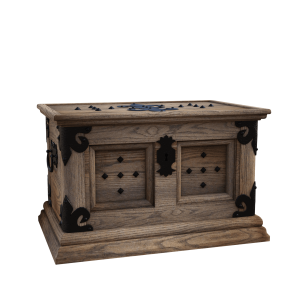You’ll hear about many ways to make and keep your resilience strong. You hear about the value of community, consistent routines for self-care, and setting goals. Those are all valuable and when you use them all, they make for a good foundation to keep you resilient in the face of adversity and challenges. Part of the message is to develop good mental health.
 I’m not talking about traumatic events, but the ebb and flow of life. That said, I suspect if you have built a strong resilient mind that traumatic events impact you less.
I’m not talking about traumatic events, but the ebb and flow of life. That said, I suspect if you have built a strong resilient mind that traumatic events impact you less.
Challenges don’t have to be big to show you if your resilience is weak or strong. I used to give blood every two months. At each visit, the blood bank helpfully had the date for when to come back posted on the wall. I remember a day I returned as suggested. They’d made a mistake and I was a day early. Oh, the volcano that news unleashed in me! That glitch threw off my entire day — and the next day! On the way home I had to laugh. Who gets mad at not being able to give blood?! Me, evidently, when I’m tired and stressed — when my resilience is off.
How you respond to disappointment can also help you see where your resilience is on the meter of life. For a special family dinner, I was tasked with making Mom’s divine almond cake. It always came out so moist. A touch of powdered sugar on top and a piece of chocolate lace carefully placed on the slice before serving it and you were in dessert heaven. When it was time to serve dessert, I grabbed the serving plate, and carefully turned the cake onto the plate. Oh no. It fell out onto the plate in crumbles! I turned to my brother and asked him to go get the vanilla ice cream so we could dish the almond crumble onto the servings before adding the chocolate lace. What a flash of inspiration!
My resilience was strong that day. Rather than being devastated or disappointed, I changed the name of the dessert and ran with it. Same delicious flavor. A different presentation. It was a hit!
These two stories help you see what difference your mindset can make to your ability to “go with the flow”. Are you in a fixed or open mindset? Do you see the world having finite or infinite possibilities? How rigid or adaptable are you? Is your world black and white, or a rainbow of color? It all makes a difference.
Adaptability
Let me share more analogies to see if you can better grasp the value of resilience in your life. Bamboo is a grass — a big grass, but a grass nonetheless. Have you stopped to realize that flexible glass is used in a variety of construction modes from flooring to walls to scaffolding? I was startled to see bamboo scaffolding on high rises in Beijing. It’s so flexible, how could it be strong enough to be used for all those products?
And palm trees? Have you seen them sway and bend in hurricane winds? They don’t snap the way oak and evergreen trees do. You may think that the strength of the oak and evergreen would make them adaptable to the stiff winds of hurricanes. But time and again, palm trees have won the day. Flexibility in your life also gives you the strength to withstand your storms while rigidity may cause you to snap.
What about community? Do you have a good support system of friends, family, and counselors to help you weather storms? I’ve heard that when trees grow in groves they support each other during storms. As the grove is thinned, the effectiveness of the support system is pruned or reduced. By the time there are only a few trees left, the trees don’t have the strength they did when there were large numbers of trees and they perish in storms.
Your Toolbox
That’s true of your life, too. There’s great value in maintaining your community so you can help each other through life’s tests; you never know when there will be one.
Develop your resiliency toolbox. Life is change. And change can be stressful for many people. Learning how to manage stress and change is key to living a healthier, happier life. Let’s call the development of learning how to manage this — resiliency.
Transforming your fear, beliefs that hold you back, and dreams are part of your toolbox you can develop to help manage the stress and change. Your diet, exercise, and sleep habits are other tools you can put into your toolbox to improve your healthy life. Community is an excellent tool to include as well.
What are you going to put into your toolbox? Your mindset is probably the most valuable tool you have if it’s a mindset of being open, flexible, and adaptable, and if you see the rainbow of possibilities and options to help you get through the storm and the change. The completeness of your toolbox helps you pass the tests that come your way.

Your story reminds me of the old saying, “it’s not what happens to you in life, it’s how you respond to it that matters.” Mindset is everything! Great article Kit!
I like your observation.
Mindset indeed. And it covers more than your attitude. It also impacts how you treat your body — sleep, diet, and movement.
I’m not just impressed with this wonderful read, I’m also hungry for almond crumble!
Thanks for the compliment, Emily.
When you meet, maybe I can bring you some of my now world-famous Almond Crumble. 😀